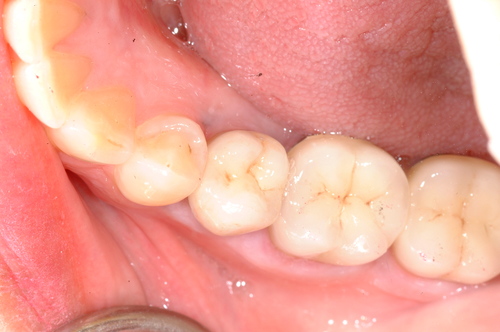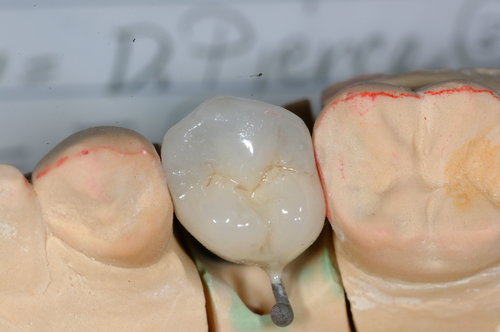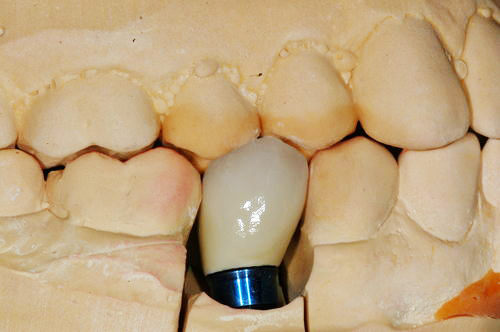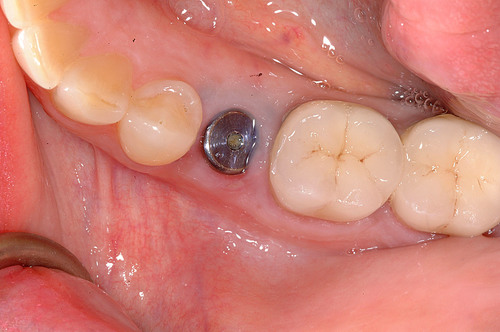Implants are small titanium cylinders about the size of a tooth root that are implanted in the jawbone of the missing tooth or teeth. Once in place, the implant serves as an anchor for a crown, bridge, denture, or other dental prosthesis. The number of missing teeth and their position will determine the type of restoration that will be recommended for use on top of the implant(s).




Implants allow the placement of permanent fixed teeth that can truly mimic one’s own natural teeth in look, feel, and function. They provide 100% of your natural chewing ability. If you have dentures or missing teeth, replacing them with implants can normally restore natural function without the worry of a moving or slipping, removable appliance. Additionally, implant placement will prevent the bone loss that occurs when teeth are lost.
We’ll plan the ideal position and angulaton of the tooth to be replaced. A very precise guide for the position of the implants is created to assist in the surgical procedure. Under local anesthetic, with or without sedation, the implant is carefully placed. Following a short period of healing, we will position the final tooth.

No, you will not be required to go without teeth during the course of the treatment. Often the implant will be immediately restored with a tooth. If a longer healing time is required, temporary teeth will always be utilized to give you a natural appearance and provide proper function.
In the case of missing teeth, dental implants are commonly the treatment of choice. However, a few medical conditions can preclude the use of dental implants. For example, studies show that smoking can increase the likelihood of implant rejection.
Total fees will depend upon the number of missing teeth, the location, and the number of implants required. It’s not necessary to have an implant for each missing tooth. When using an implant to replace only one tooth, the cost is comparable to that of fitting a permanent fixed bridge.